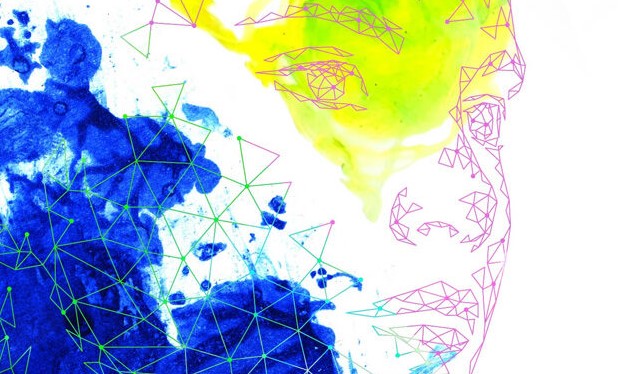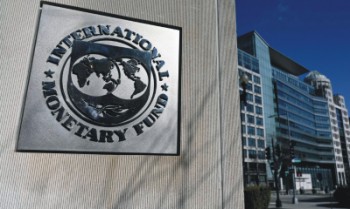International Day of Identity: The Significance, Challenges, and Pathways for Advancement
By: M. Moin Butt

Every September 16, the world observes the International Day of Identity, a day dedicated to highlighting the importance of identity and safeguarding individuals’ rights. This day not only brings attention to the significance of identity but also emphasizes the need to ensure that every individual can access their rights, freedoms, and personal information. The International Day of Identity serves as a platform to raise awareness, address legal and social challenges, and explore ways to foster a balanced and just society.
The Foundation of Identity: A Human Right
Identity is one of the most fundamental aspects of human existence. It encompasses not only our names, nationalities, and religions but also our personal, cultural, and social recognition. Without identity, individuals may become disconnected from their culture, language, and history. Moreover, having an identity is essential for accessing fundamental rights, such as education, healthcare, and legal protection.
The importance of identity is widely recognized at the international level. The Universal Declaration of Human Rights, adopted by the United Nations, affirms that every person has the right to an identity. According to this declaration, every individual should have legal recognition, maintain their name and nationality, and enjoy the protection of their rights.
The International Day of Identity: Background and Significance
The International Day of Identity was officially recognized by the United Nations General Assembly in 2014. The day’s primary objective is to emphasize the importance of the right to identity and to ensure that everyone has legal recognition. Without legal identity, individuals can be deprived of basic rights, services, and protections.
The issue of identity deficit is a severe problem affecting millions of people worldwide. Those without identity documents often struggle to access education, healthcare, and legal protections. The International Day of Identity provides a platform to address these issues, raise awareness, and implement relevant actions to mitigate the problem.
Identity Deficit: Problems and Challenges
The issue of identity deficit is complex and multifaceted. To understand this issue better, several key aspects must be examined:
- Legal and Administrative Issues: In many countries, the identity system is weak, making it difficult for individuals to obtain legal recognition. Some countries have inadequate or inaccessible systems, leading to challenges in acquiring identity documents.
- Social and Cultural Barriers: Social and cultural practices can exacerbate identity issues. For example, in some countries, women may face difficulties obtaining identity documents, which can prevent them from accessing education, healthcare, and other services.
- Disputed Territories and Refugees: In conflict zones and war-torn areas, identity issues become more severe. Refugees and displaced persons often face difficulties in obtaining identity documents, leaving them without basic rights and services.
- Lack of Technology: Many countries lack modern technology necessary for robust identity systems. The absence of advanced technology can hinder efforts to address identity issues effectively.
Addressing Identity Issues: Potential Solutions
To tackle identity deficit effectively, several measures can be taken:
- Legal Reforms: Governments need to strengthen identity systems and implement legal reforms to ensure that every individual can obtain legal recognition. Reforms should focus on streamlining processes, improving access, and enhancing the quality of identity documentation.
- Educational and Awareness Programs: Raising awareness about the importance of identity through public education and awareness programs is crucial. Educational initiatives, workshops, and media campaigns can help inform individuals about the significance of identity and how to obtain identity documents.
- Public-Private Partnerships: Collaboration between governments, non-governmental organizations (NGOs), and international bodies can enhance efforts to address identity issues. Partnerships can provide resources, share information, and implement joint initiatives to improve identity systems.
- Adopting Modern Technology: Utilizing advanced technology can strengthen identity systems. Biometric systems, digital identity solutions, and other modern technologies can make identity processes more efficient and transparent.
International Day of Identity: Awareness and Campaigns
On International Day of Identity, various awareness and advocacy campaigns are conducted to highlight the importance of identity and raise awareness about identity-related issues. These campaigns include:
- Global and Local Events: Events, seminars, and workshops are organized worldwide to mark International Day of Identity. These gatherings bring together experts, policymakers, and activists to discuss identity issues and propose solutions.
- Media Campaigns: Media outlets play a crucial role in raising awareness about identity issues. Television, radio, and social media campaigns share information about the importance of identity and highlight the challenges faced by individuals without legal recognition.
- Public Policy and Legal Proposals: On this day, public policy and legal proposals are often presented to improve identity systems and address identity issues. These proposals aim to strengthen legal frameworks and enhance the accessibility and efficiency of identity processes.
Future Directions: Addressing Identity Issues and Promoting Progress
International Day of Identity provides an opportunity to reflect on identity issues and explore pathways for progress. To address identity issues and promote advancement, several future directions can be considered:
- Global Collaboration: Enhancing global collaboration is essential for addressing identity issues. International organizations, governments, and NGOs should work together to share best practices, resources, and technology to improve identity systems worldwide.
- Research Initiatives: Ongoing research into identity systems and related issues is crucial for identifying new challenges and developing effective solutions. Research initiatives can contribute to the improvement of identity processes and the development of innovative technologies.
- Community Engagement: Engaging communities in addressing identity issues is vital. Public participation and awareness can strengthen identity systems and foster a sense of ownership among individuals, leading to more effective solutions.
- Policy and Technological Innovations: Embracing policy and technological innovations can enhance identity systems. New policies and technologies can address existing challenges, streamline processes, and ensure that every individual has access to legal recognition.
Case Studies: Successful Identity Initiatives
Several countries have successfully implemented initiatives to improve identity systems and address identity issues. These case studies provide valuable insights and lessons for other regions facing similar challenges:
- India’s Aadhaar Program: India’s Aadhaar program is one of the largest biometric identity systems in the world. It provides residents with a unique identification number linked to their biometric data. The program has improved access to services and benefits for millions of people.
- Estonia’s Digital Identity System: Estonia’s digital identity system is a pioneering example of leveraging technology to provide citizens with secure and accessible identity services. The system enables citizens to access a wide range of services online, including banking, healthcare, and government services.
- Kenya’s Huduma Number Initiative: Kenya’s Huduma Number initiative aims to provide citizens with a unique identification number for accessing government services. The initiative has streamlined identity verification processes and improved access to essential services.
Conclusion
International Day of Identity is a crucial occasion to highlight the importance of identity and address the challenges associated with identity deficit. Identity is a fundamental human right, and ensuring that every individual has legal recognition is essential for accessing basic rights, services, and protections.
By raising awareness, implementing legal and policy reforms, embracing modern technology, and fostering global collaboration, we can work towards resolving identity issues and promoting a more inclusive and just society. As we observe International Day of Identity, let us commit to addressing these challenges and creating a world where every individual can fully realize their identity and rights.



